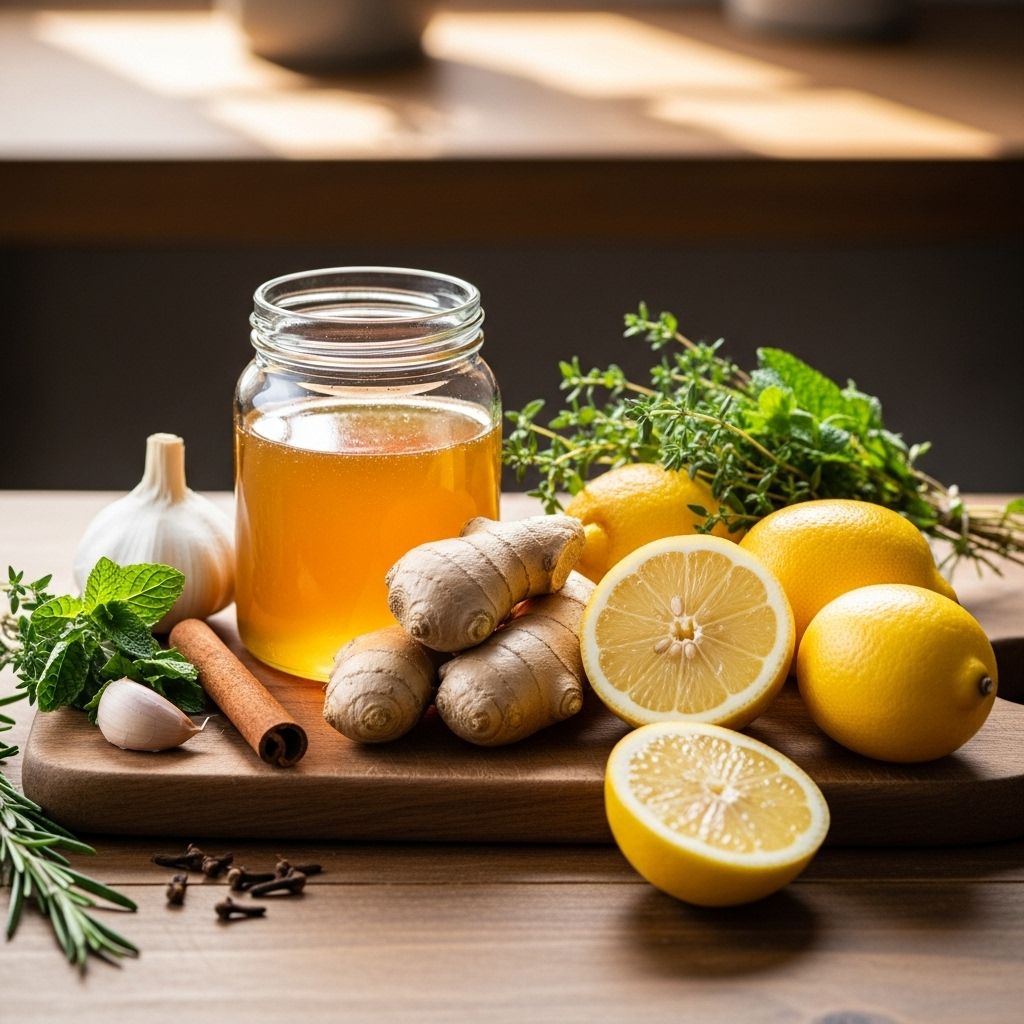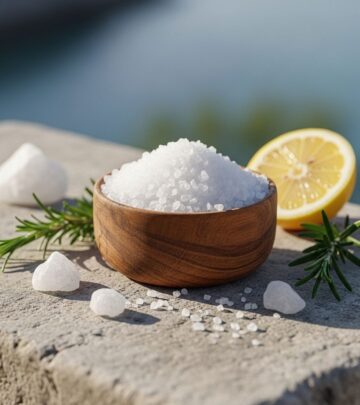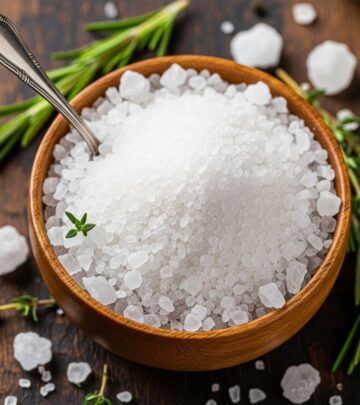Natural Cough Remedies: 15 Home Treatments That Actually Work
Discover proven home remedies to soothe your cough naturally and effectively

Table of Contents
- Understanding Different Types of Cough
- Honey: Nature’s Cough Suppressant
- Ginger: Anti-Inflammatory Powerhouse
- Steam Therapy and Humidification
- Herbal Teas for Soothing Relief
- Saltwater Gargle Technique
- Turmeric and Its Healing Properties
- Pineapple and Bromelain Enzyme
- Hydration for Mucus Management
- Menthol and Peppermint Relief
- Marshmallow Root Benefits
- Elderberry for Immune Support
- When to Seek Medical Attention
- Safety Precautions and Considerations
- Frequently Asked Questions
Coughing is one of the most common symptoms that affects people of all ages, often disrupting sleep, work, and daily activities. Whether caused by a cold, allergies, or respiratory irritation, a persistent cough can be both uncomfortable and frustrating. While over-the-counter medications are readily available, many people prefer natural remedies that can provide effective relief without potential side effects.
Natural cough remedies have been used for centuries across different cultures and are often backed by both traditional wisdom and modern scientific research. These home treatments work by soothing irritated throat tissues, reducing inflammation, loosening mucus, or suppressing the cough reflex naturally. The best part about these remedies is that most ingredients are readily available in your kitchen or local grocery store.
Understanding Different Types of Cough
Before exploring specific remedies, it’s important to understand that not all coughs are the same. There are two main types of coughs, each requiring slightly different approaches for effective treatment.
Dry Cough
A dry cough, also known as a non-productive cough, doesn’t produce mucus or phlegm. This type of cough is often caused by viral infections, allergies, or environmental irritants. Dry coughs can be particularly irritating because they don’t serve to clear anything from the respiratory system but persist due to throat irritation.
Wet Cough
A wet cough, or productive cough, brings up mucus or phlegm from the lungs and airways. This type of cough actually serves a beneficial purpose by helping to clear secretions from the respiratory system. However, it can still be uncomfortable and may require treatment to make the mucus easier to expel.
Honey: Nature’s Cough Suppressant
Honey stands out as one of the most effective and well-researched natural cough remedies available. Multiple studies have demonstrated its effectiveness in suppressing cough symptoms and promoting healing.
How Honey Works
Honey works through several mechanisms to combat cough. Its thick consistency coats the throat, providing a protective barrier that soothes irritated tissues. Additionally, honey has antimicrobial properties that can help fight infections, and its antioxidant content supports the immune system’s healing processes.
A 2021 comprehensive review of studies found that honey was superior to usual care in both suppressing coughs and reducing the need for antibiotics in upper respiratory infections. Another study comparing honey to dextromethorphan, a common over-the-counter cough suppressant, found both treatments to be equally effective.
Best Ways to Use Honey
The most effective way to use honey for cough relief is to take one to two teaspoons directly before bedtime. This timing allows the honey to coat the throat throughout the night when coughing often worsens. You can also add honey to warm herbal teas or warm water for a soothing drink throughout the day.
Important Safety Note: Never give honey to children under 12 months of age, as it may contain bacteria that can cause botulism in infants whose immune systems aren’t fully developed.
Ginger: Anti-Inflammatory Powerhouse
Ginger has been used in traditional medicine for thousands of years and contains powerful compounds that make it an excellent natural cough remedy. The root contains gingerols and shogaols, which have anti-inflammatory, antioxidant, and antimicrobial properties.
Benefits of Ginger for Cough
Research shows that certain purified compounds in ginger root can relax the muscles that tighten airways, making breathing easier and reducing cough frequency. Ginger’s anti-inflammatory properties help reduce inflammation in the respiratory tract, which can be a primary cause of persistent coughing.
Preparation Methods
Fresh ginger tea is one of the most effective ways to use ginger for cough relief. Slice a 1-inch piece of fresh ginger root and steep it in hot water for 10-15 minutes. You can enhance the remedy by adding honey and lemon juice. Alternatively, you can consume small pieces of raw ginger or mix ground ginger with honey.
Steam Therapy and Humidification
Steam therapy is particularly effective for wet coughs because it helps loosen mucus and makes it easier to expel. The warm, moist air also soothes irritated airways and can provide immediate relief from coughing fits.
Steam Inhalation Methods
The simplest method is to take a hot shower and breathe in the steam-filled air for several minutes. For more targeted treatment, you can create a steam tent by leaning over a bowl of hot water with a towel draped over your head. Adding essential oils like eucalyptus or peppermint can enhance the therapeutic effects.
Humidifier Benefits
Using a humidifier in your bedroom can help prevent nighttime coughing by keeping airways moist. Dry indoor air, especially during winter months, can irritate respiratory passages and worsen cough symptoms. Maintaining indoor humidity between 40-60% is optimal for respiratory health.
Herbal Teas for Soothing Relief
Several herbal teas have proven beneficial for cough relief, each offering unique therapeutic properties that can soothe irritated throats and reduce cough frequency.
Thyme Tea
Thyme has been used traditionally to treat respiratory illnesses and contains compounds that can relax throat muscles involved in coughing while reducing inflammation. The herb’s antimicrobial properties also help fight underlying infections that may be causing the cough.
Chamomile Tea
Chamomile is well-known for its calming and anti-inflammatory properties. When consumed as a warm tea, it can soothe irritated throat tissues and promote relaxation, which may help reduce stress-induced coughing.
Peppermint Tea
Peppermint contains menthol, which has a cooling effect and can help open airways. The menthol acts as a natural decongestant and can provide temporary relief from cough symptoms while also freshening breath.
Licorice Root Tea
Licorice root has demulcent properties, meaning it forms a soothing film over mucous membranes. This coating effect can provide relief from throat irritation and reduce the urge to cough.
Saltwater Gargle Technique
Gargling with warm saltwater is a simple yet effective remedy that has been used for generations to treat throat irritation and cough symptoms.
How Saltwater Works
Salt water helps reduce inflammation in throat tissues and can kill bacteria that may be contributing to the cough. The osmotic effect of salt can also help draw excess fluid from swollen tissues, reducing irritation.
Proper Gargling Technique
Dissolve half a teaspoon of salt in one cup of warm water, ensuring the salt is completely dissolved. Gargle the solution for 15-30 seconds, allowing it to reach the back of your throat before spitting it out. Repeat this process 2-3 times daily for best results.
Turmeric and Its Healing Properties
Turmeric contains curcumin, a powerful compound with anti-inflammatory, antioxidant, and antiviral properties. These characteristics make turmeric an excellent natural remedy for cough relief.
Golden Milk Recipe
One of the most effective ways to consume turmeric for cough relief is through golden milk. Combine one teaspoon of turmeric powder with a cup of warm milk (dairy or plant-based), add a pinch of black pepper to enhance absorption, and sweeten with honey. The warm liquid soothes the throat while the turmeric works to reduce inflammation.
Pineapple and Bromelain Enzyme
Pineapple contains bromelain, a powerful enzyme that may help suppress coughs and loosen mucus in the respiratory tract. This natural enzyme has anti-inflammatory properties and can help break down proteins that contribute to mucus formation.
Consumption Methods
Fresh pineapple is the best source of bromelain, as processing can reduce enzyme activity. Eat fresh pineapple slices or drink fresh pineapple juice for optimal benefits. Bromelain supplements are also available, but fresh fruit provides additional vitamins and nutrients that support overall health.
Hydration for Mucus Management
Proper hydration is crucial for managing cough symptoms, particularly wet coughs. Adequate fluid intake helps thin mucus secretions, making them easier to expel and reducing the need for forceful coughing.
Best Fluids for Cough Relief
Warm fluids are generally more soothing than cold ones. Warm water, herbal teas, and warm broths can provide comfort while maintaining hydration. Avoid dairy products if you notice they increase mucus production, and limit caffeine as it can contribute to dehydration.
Menthol and Peppermint Relief
Menthol, naturally found in peppermint, can provide temporary relief from cough symptoms by creating a cooling sensation and helping to open airways. This compound works as a natural antispasmodic and can help relax the muscles involved in coughing.
Application Methods
You can benefit from menthol through peppermint tea, menthol cough drops, or chest rubs containing menthol. However, use menthol products in moderation, as excessive use may actually worsen cough symptoms in some individuals.
Marshmallow Root Benefits
Marshmallow root has a long history of use in traditional medicine for treating coughs and sore throats. The root contains mucilage, a gel-like substance that coats and soothes irritated tissues.
Preparation and Use
Marshmallow root is available as dried herb or pre-made tea bags. Steep the root in hot water for 10-15 minutes to allow maximum mucilage extraction. The longer steeping time creates a more viscous liquid that provides better coating action for throat tissues.
Elderberry for Immune Support
Elderberry has gained recognition for its immune-supporting properties and may help reduce the duration of cough symptoms. Studies suggest that elderberry extract can help the body fight viral infections more effectively, potentially shortening illness duration.
Forms and Dosage
Elderberry is available as syrup, capsules, or gummies. Follow manufacturer instructions for dosage, and choose products from reputable sources to ensure quality and safety.
When to Seek Medical Attention
While natural remedies can be highly effective for many types of coughs, certain symptoms warrant medical attention. Understanding when to seek professional help is crucial for maintaining health and preventing complications.
Warning Signs
Consult a healthcare provider if you experience coughing up blood, difficulty breathing, chest pain, fever over 101.3°F (38.5°C), or if the cough persists for more than three weeks. Additionally, seek immediate medical attention if you develop signs of pneumonia or if the cough significantly interferes with sleep or daily activities.
Safety Precautions and Considerations
While natural remedies are generally safe, certain precautions should be observed to ensure optimal safety and effectiveness.
Allergy Considerations
Always be aware of potential allergies to herbs, honey, or other natural ingredients. Start with small amounts when trying a new remedy, and discontinue use if you experience any adverse reactions.
Drug Interactions
Some herbs and supplements can interact with medications. If you’re taking prescription drugs, consult with your healthcare provider before starting any new herbal remedies, especially if you have underlying health conditions.
Age-Specific Guidelines
Certain remedies have age restrictions. Never give honey to infants under 12 months, and be cautious with strong herbs or essential oils around young children. Always supervise children when using steam therapy to prevent burns.
Frequently Asked Questions
Q: How long should I try natural remedies before seeking medical treatment?
A: Most acute coughs from common colds improve within 2-3 weeks. If your cough persists beyond three weeks, worsens over time, or is accompanied by concerning symptoms like fever, blood, or difficulty breathing, consult a healthcare provider promptly.
Q: Can I use multiple natural remedies at the same time?
A: Yes, many natural remedies can be safely combined. For example, you can drink ginger tea with honey while using a humidifier. However, avoid overusing any single remedy and be mindful of potential interactions if you’re taking medications.
Q: Are natural cough remedies safe for children?
A: Many natural remedies are safe for children over 12 months, but dosages and preparations may need adjustment. Never give honey to infants under 12 months. Always supervise children during steam therapy and consult a pediatrician for persistent coughs in children.
Q: Which natural remedy works fastest for cough relief?
A: Honey and steam therapy often provide the quickest relief. Honey can soothe throat irritation within minutes, while steam therapy can immediately help with congestion and mucus. However, individual responses vary, and what works fastest for one person may differ for another.
Q: Can natural remedies completely cure my cough?
A: Natural remedies can effectively manage symptoms and support healing, but they may not cure underlying conditions causing the cough. For bacterial infections or chronic conditions like asthma, professional medical treatment may be necessary alongside natural supportive care.
Q: Is it normal for a cough to get worse before it gets better with natural remedies?
A: Some temporary increase in productive coughing may occur with remedies that help loosen mucus, like steam therapy. However, if your cough significantly worsens or new symptoms develop, discontinue the remedy and consult a healthcare provider.
Natural cough remedies offer a safe, effective, and accessible approach to managing cough symptoms. By understanding the different types of coughs and matching appropriate remedies to your specific symptoms, you can find significant relief using ingredients commonly found in your home. Remember to combine these remedies with adequate rest, proper hydration, and good hygiene practices for optimal recovery. While these natural treatments can be highly effective, always prioritize your health and seek professional medical advice when symptoms are severe, persistent, or concerning.
References
- https://www.mountelizabeth.com.sg/health-plus/article/how-to-stop-coughing-naturally
- https://health.clevelandclinic.org/how-to-stop-coughing
- https://www.medicalnewstoday.com/articles/322394
- https://www.webmd.com/cold-and-flu/ss/slideshow-natural-cough-remedies
- https://stvincents.org/about-us/news-press/news-detail?articleId=61192
- https://www.mayoclinic.org/symptoms/cough/expert-answers/honey/faq-20058031
- https://www.stlouischildrens.org/health-resources/symptom-checker/coughs-meds-or-home-remedies
- https://www.seattlechildrens.org/conditions/a-z/coughs-meds-or-home-remedies/
- https://www.mayoclinic.org/diseases-conditions/common-cold/in-depth/cold-remedies/art-20046403
Read full bio of Sneha Tete











